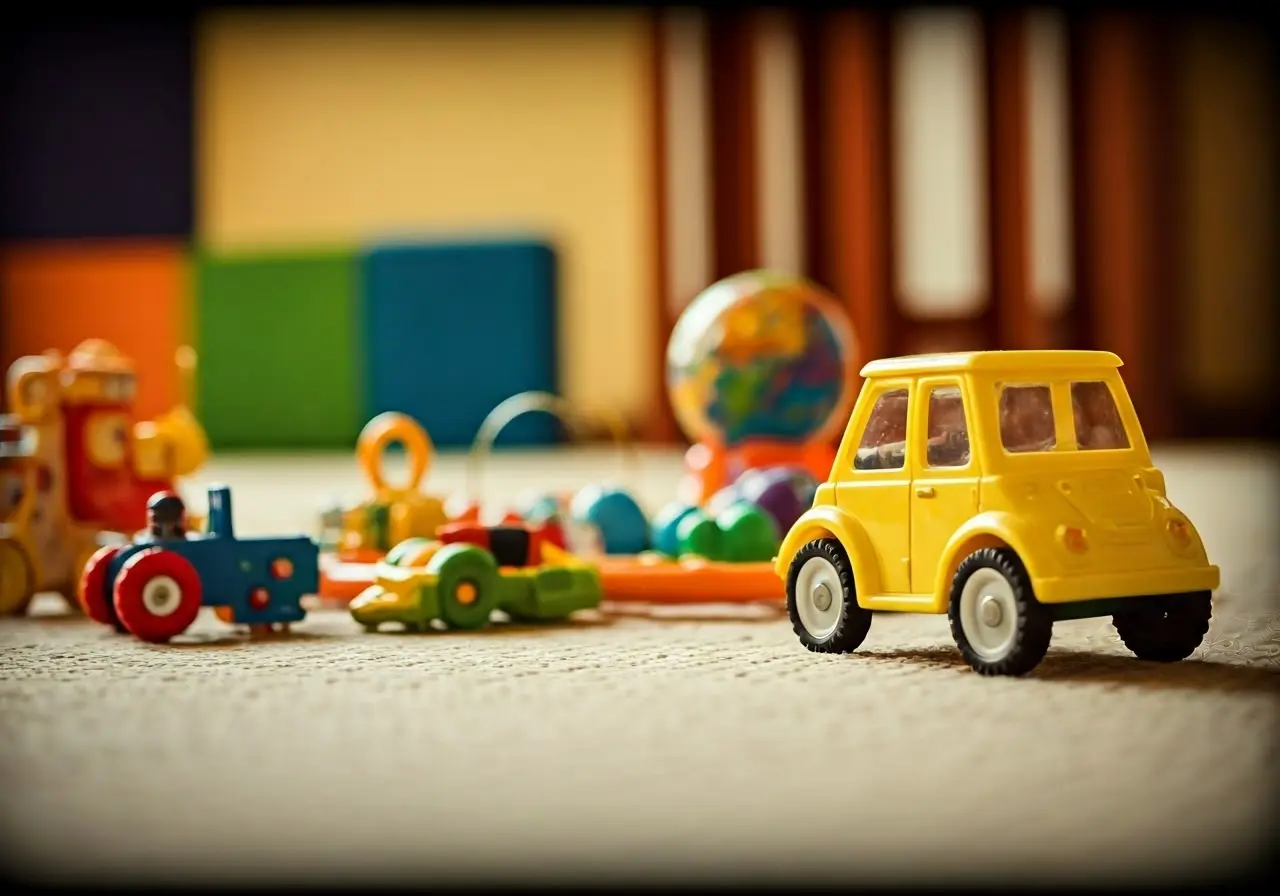As parents, we often hear that playtime is crucial for a baby’s development. But what exactly makes it so important? In this blog, we’ll explore the various ways in which baby play contributes to their overall growth and development.
Fostering Physical Development
Play encourages babies to move and explore their surroundings, which is vital for developing their motor skills. Activities like crawling, grabbing, and bouncing help strengthen muscles and improve coordination.
During tummy time, for instance, babies work on lifting their heads, which strengthens their neck and shoulder muscles. This position is also crucial for developing balance and coordination as they prepare to crawl. Play mats with colorful patterns and textures stimulate their visual and tactile senses, encouraging them to reach out and explore on their own terms.
Many parents may wonder just how much playtime is necessary. It’s important to integrate movement throughout the day, keeping play sessions short but frequent. Allowing babies to move freely in a safe space is key to their physical and overall development. Encourage activities that promote balance, strength, and flexibility. As they grow, toys that push or pull can further enhance their motor skills.
Enhancing Cognitive Skills
Through play, babies learn about the world around them. Problem-solving tasks like sorting and stacking toys boost their cognitive abilities, helping them understand cause and effect, spatial relationships, and more.
Cognitive development during playtime occurs when babies interact with puzzles or simple board games designed for their age group. These toys encourage problem-solving and reasoning. When a baby successfully matches a shape to its hole in a puzzle, they’re not just having fun—they’re building a foundation of logical thinking and memory skills.
Parents can choose toys that grow with the baby, offering adjustable difficulty levels as the child develops. Toys like blocks or interactive books stimulate imagination and provide endless opportunities for coming up with stories or exploring new concepts, which is essential for cognitive growth.
Supporting Emotional Health
Play acts as a safe space for babies to express their feelings. It allows them to experience joy, frustration, and excitement, aiding in emotional regulation and resilience as they grow.
Through play, babies begin to understand feelings. They learn to associate positive emotions with caregivers during interactive or imaginative play. This attachment builds trust and emotional security, which is the backbone of healthy social and emotional development. Observing how caregivers react to their emotional expressions teaches them empathy and understanding.
For parents, playing with your baby provides insights into their emotional world. It’s an opportunity to recognize what captivates them or makes them uncomfortable, allowing for nurturing guidance through unfamiliar feelings.
Building Social Skills
Interactive play with caregivers or other children nurtures social understanding. Babies learn to share, take turns, and communicate, laying the groundwork for strong social bonds in the future.
As babies engage in play dates or group play, they encounter new social settings that teach communication skills and adaptability. For instance, playing simple games like peek-a-boo or pat-a-cake involves anticipation and imitation—skills vital for social interaction.
Participating in group music classes or storytime can expose babies to a communal learning environment, often their first introduction to social settings outside the home. These activities foster a sense of belonging and ignite an interest in others, which is essential for developing into a socially equipped individual.
Stimulating Sensory Development
Sensory play, including tactile activities with various textures, sounds, and colors, helps babies process sensory information and refine their perceptions, which is key for brain development.
Babies explore their world through senses, and engaging in sensory activities supports brain growth by exposing them to varied sensory inputs. Playing with musical instruments lets them hear different pitches and rhythms, while squishing soft dough or sand stimulates tactile exploration.
Parents can create a sensory-friendly environment by incorporating safe, everyday materials like rice bins, water tables, and fabric swatches. Such activities not only enhance sensory processing but also encourage creativity—a delightful path to learning through discovery.
Embrace Baby Play for Strong Development
Understanding the importance of play helps us support our little ones in the best possible way. By providing them with opportunities to engage in diverse types of play, we ensure they grow into healthy, happy, and well-rounded individuals.






















































































